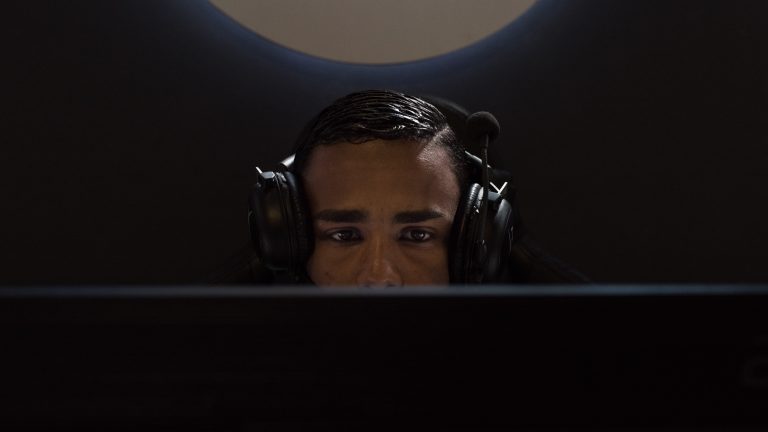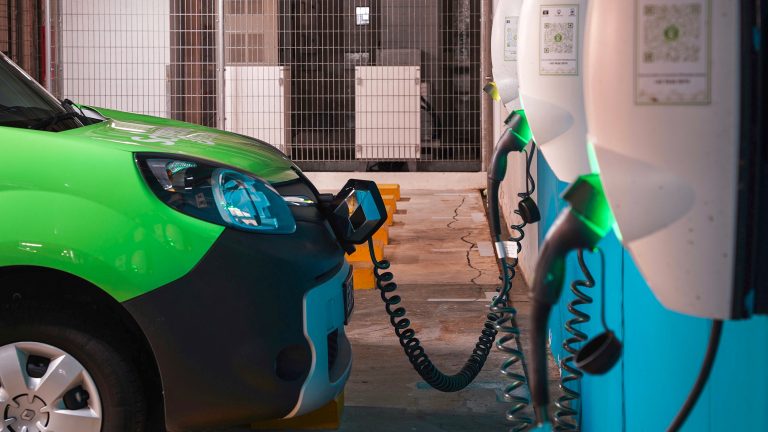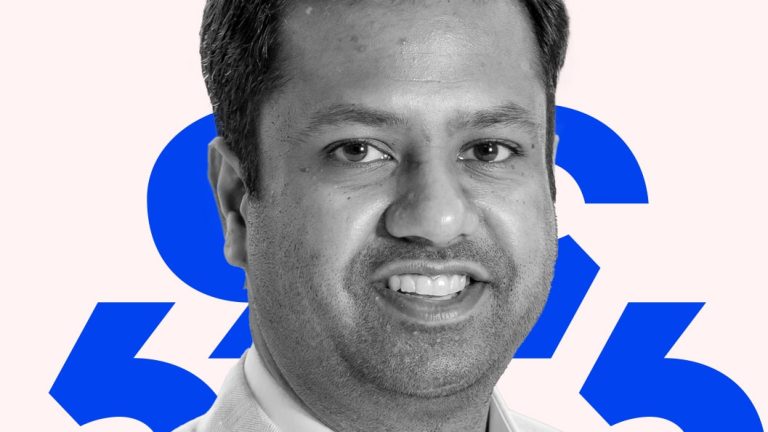Until recently, the wonders of the digital economy barely featured in Gabriela Ferreira’s daily life. She was born in the Rio de Janeiro favela of Parada de Lucas and got her first smartphone in 2018 at the age of 17. “My grandpa bought me a very simple one with his social security retirement money for me to study,” she recalls.
One out of every five Brazilians still has no internet access. In the cities, the hardest hit by digital exclusion are undoubtedly those in the favelas — lower-income communities where 43% of people have little to no access to mobile internet networks, and when they do, it is limited to 3G or 4G. Meanwhile, underscoring Brazil’s inequality, the coming months will see a public auction to implement the 5G technology that the vast majority of favela inhabitants could only dream of affording.
Even without 5G on offer, the cheapest internet plans are around $14, while Brazil’s minimum wage corresponds to $198 per month. Despite being a popular alternative, clandestine internet connections are periodically destroyed by the police. What’s more, since state and private enterprise have historically neglected favelas, regular broadband internet services are frequently unavailable in these areas: 52% of favela residents access the internet only once a month — if they’re lucky.
Until 2019, the only computers to which Ferreira had free access on a daily basis were owned by her school and her employer. Back then, she worked as a management trainee at a private clinical laboratory in Rio. After her mother fell sick and had to quit her job as a telemarketing attendant, Ferreira’s family’s joint earnings suddenly fell short of their living expenses.
But, even in those tough times, the pull of the internet was strong. To go online in Brazil’s favelas, people will often book a PC at the cybercafés scattered around their neighborhood, for a reasonable hourly fee of around 40 cents. Whenever there was any spare money left for leisure, Ferreira would escape from her hectic home life to play video games there with her friends.
It was at this time that Brazil was undergoing a sort of digital revolution, as games like FIFA, League of Legends, and Free Fire increasingly turned casual players into electronic sports (esports) professionals. What was particularly noteworthy of this upheaval was that, despite the country’s deep digital divide, youngsters who’d grown up in favelas began to aspire to build careers as esports professionals.
Ferreira was among them, as she and other gamers were recruited by corporate investors and the media as the new faces of a burgeoning industry — one that has promised to turn gaming into an opportunity for social mobility and digital inclusion.
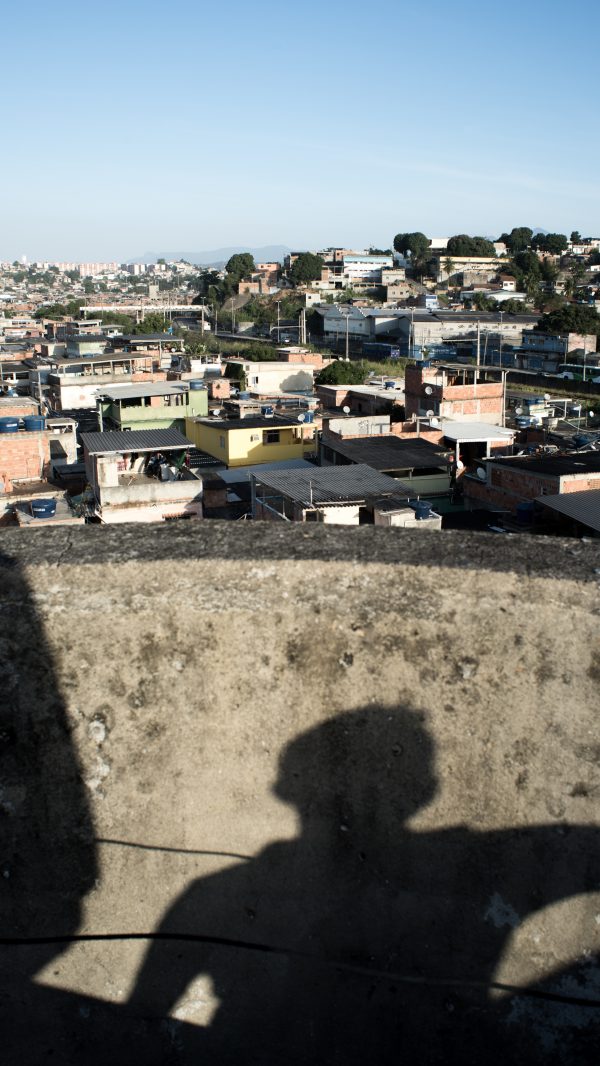

Bruno “Nobru” Goes and Lucio “Cerol” Dos Santos Lima were brought up in a favela and have become among the most influential streamers in Brazil. Born in the São Paulo favela Jardim Novo Oriente, 20-year-old Nobru is a streamer for the game Free Fire, a first-person shooter. He has over 33 million followers on social media and is known as “the Neymar of e-games,” after becoming the world champion at the Free Fire World Series in 2019.
“You don’t see Black people, women, or people from the favela in the Brazilian Championship of League of Legends.”
It is no coincidence that Brazil’s most influential streamers are both Free Fire players. It is the most popular video game in the country — played by 70.9% of all Brazilian gamers. The reason behind its popularity is simple: the game doesn’t require more than a basic, cheap smartphone to be downloaded. “Free Fire is a fever in the favela. Kids spend the whole day playing on their phones,” said Ferreira. “You don’t see Black people, women, or people from the favela in the Brazilian Championship of League of Legends.”
Cerol, a 28-year-old Free Fire streamer with over 19 million followers from Rio’s Campo Grande neighborhood, and Nobru co-founded Fluxo, an esports organization focused on hiring and training favela-born teens and children. They are sponsored by tech giants like TikTok, Next (a neobank), and Casas Bahia (a massive electronic appliances chain). Fluxo launched just six months ago but already makes over $180,000 a month in revenue.
In December 2020, after only two years of playing e-games as a hobby, Ferreira was hired as a professional League of Legends player by AfroGames, the world’s first esports training center to be based in a favela.
From the beginning, there was serious money riding on this esports endeavor. AFG, AfroGame’s professional team, is sponsored by Gol, a Brazilian airline; Fusion, an energy drink that belongs to Brazil’s biggest brewery; and HyperX, a gaming gear brand recently acquired by Hewlett-Packard. Around $400,000 has already been invested in AfroGames since it launched in 2019.
“I never thought I could get paid to play,” Ferreira told Rest of World.


On the one hand, that this gaming revolution happened in Brazil is unsurprising. The country is a giant on the esports scene. Its video games market is set to reach a revenue of $2.3 billion in 2021. Gaming has drawn in 72% of Brazilians, equivalent to 153 million consumers, turning Brazil into a force to be reckoned with at international tournaments. For almost two decades, they have racked up gold medals in several world championships, including CS:GO (a multiplayer first-person shooter), Rainbow Six Siege (a first-person shooter), and Magic (an online card game).
On the other hand, that such a boom has so prominently featured favela gamers is surprising.
While Brazil’s esports industry seems unstoppable, access to it is far from democratic. The most basic gaming PC costs at least $800. As a result, only 18.3% of the country’s gamers play via PC. As several games can be played only that way, or are available on only the latest (and most expensive) Android and iOS operating systems, those in the favelas can hardly experience the gaming universe at its fullest.
In 2019, AfroGames was founded in Vigário Geral, a favela in Rio’s North Zone, to address this accessibility gap: “We realized that esports was only affordable for the children of those in the upper and upper-middle classes,” explained Ricardo Chantilly, associate director at AfroGames to Rest of World. Amid an esports environment traditionally dominated by people of white and Asian descent, AfroGames, said Chantilly, looked to help change the status quo by creating a project where gamers in favelas, where residents are majority Black, had “access to cutting-edge gaming equipment worth $3,000.”
“It helps people who have never thought they could get there: women and Black people from the favela,” said Ferreira. “There are people who participate in the project who had never seen a PC before.”
“Many kids already watch YouTube videos on smartphones. Imagine when they know that they can be the next ones on YouTube?” she added, referring to game streamers, a very trendy (and potentially lucrative) profession in the esports world.
“There are people who participate in the project who had never seen a PC before.”
But esports are still far from shifting the foundations of social inequality in Brazil. Success cases like Nobru’s and Cerol’s are still exceptions. Ferreira herself has a long way to go in terms of social mobility. Having just started her career, she earns no more than a minimum wage at AFG. “I plan to save money,” she said, “but I still have to help financially at home. I am trying to save some, little by little, to buy my PC.”
Even access to a smartphone game like Free Fire can’t be taken for granted. Andreza Delgado, a Bahia-born entrepreneur who has lived in the São Paulo favela of Capão Redondo since a very early age, founded the Favelas Cup, a Free Fire tournament for favela gamers from all over the country, in 2019. While the debut edition hosted 150 participants and garnered attention from big partners like Motorola — which donated smartphones to 48 competitors — a substantial change in esports, Delgado thinks, will only happen when those who have the money bet on the favela’s potential beyond one-off handouts.
“The fact that many favela kids are playing Free Fire doesn’t mean they’re getting more access to opportunities,” she said. After all, there is still only one esports training project inside a favela (out of over 13,000 favelas in Brazil), and the first esports organization for favela gamers was created only eight months ago. Furthermore, the three winners of CUFA’s tournament “Taça das Favelas Free Fire” have made no more than a combined $6,000 — a modest amount, considering the tournament’s final was broadcast by SporTv, one of the biggest sports channels in Brazil.
Nina da Hora, a 26-year-old computer scientist and anti-racist hacker from Duque de Caxias, in the state of Rio de Janeiro, said that “the industry has loads of money and could channel it into inclusive actions and social projects,” but instead sees gaming as a cash cow with high returns on investment.

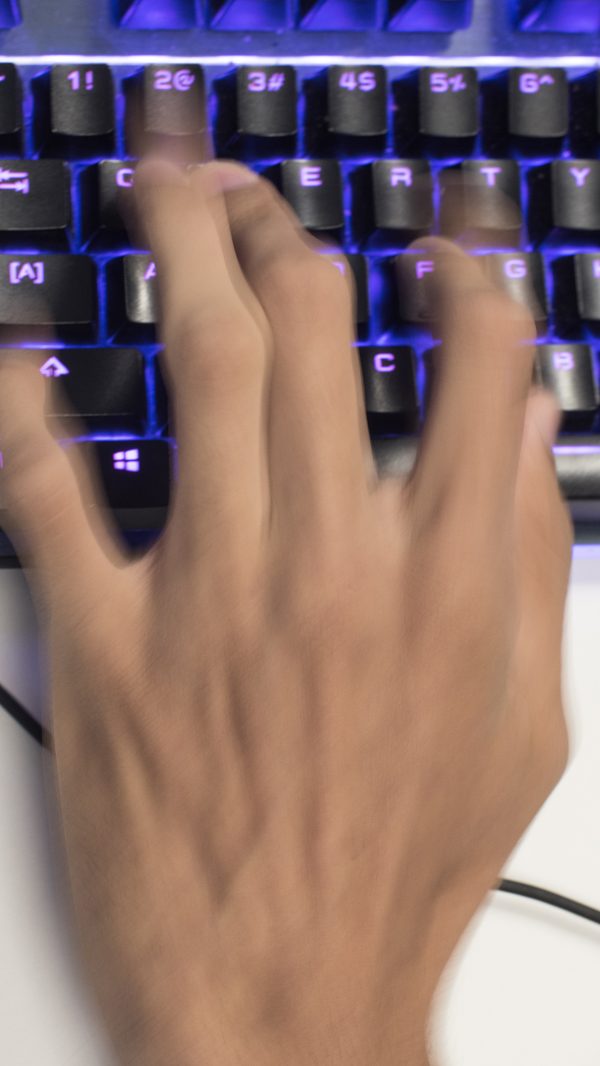

A number of sponsors have entered the favela esports scene, seeing a consumer market opportunity within a growing community of favela gamers. Some have already started reaping the benefits of their earlier investments.
Casas Bahia is one of them. During July 2021, when it announced the partnership with Nobru and Fluxo, it stood out as the brand with the highest engagement on Facebook in Brazil. “Since then, our social media engagement has increased by 30%. As we grow our influence on social media, we get closer to a gamer audience that will eventually become our target market,” Gabriel Ribeiro, Casas Bahia’s brand and social media manager, told Rest of World.
A 69-year-old consortium that currently represents one of the largest retail chains in Brazil, Casas Bahia saw sales of its games and gaming accessories jump by 789% from 2019 to 2020, and 196% from 2020 to 2021. The company saw that most of these new buyers were between 18 and 30 years old and belonged to the middle- and lower-middle classes — from households earning up to $2,000 a month.
Sponsorship has also been strategic for Next, the neobank that has invested in Fluxo since its earliest days, earning it good social media engagement: On Instagram, all of its esports-related posts have twice as much engagement as every other post.
“The use of games-related ‘Mimos’ [discount coupons that Next offers to its clients] has grown by 78%,” said Paulo Aguiar, Next’s head of marketing.
For Ale Santos, an independent researcher covering gamification and innovation in Brazil, the fact that companies are increasingly approaching the favela esports scene is both complex and paradoxical. “As brands see the outskirts engaging with esports, they automatically want to get involved in this trend,” he told Rest of World. “Though companies may see esports as a product, the money they invest in favelas and esports projects helps catalyze events, create infrastructure, and increase access.”
Such private interest in the favela esports scene is, for Andreza Delgado, unlikely to result in big structural changes. Even so, she said, these investments can pave the way for smaller, but effective changes that are no less important: “When they organize an event, when they change the life of a favela player, this helps raise the favela people’s self-esteem. As a consequence, these people start seeing that, apart from the usual stereotypes associated with Brazil’s favela universe, other ways of living are possible.”
